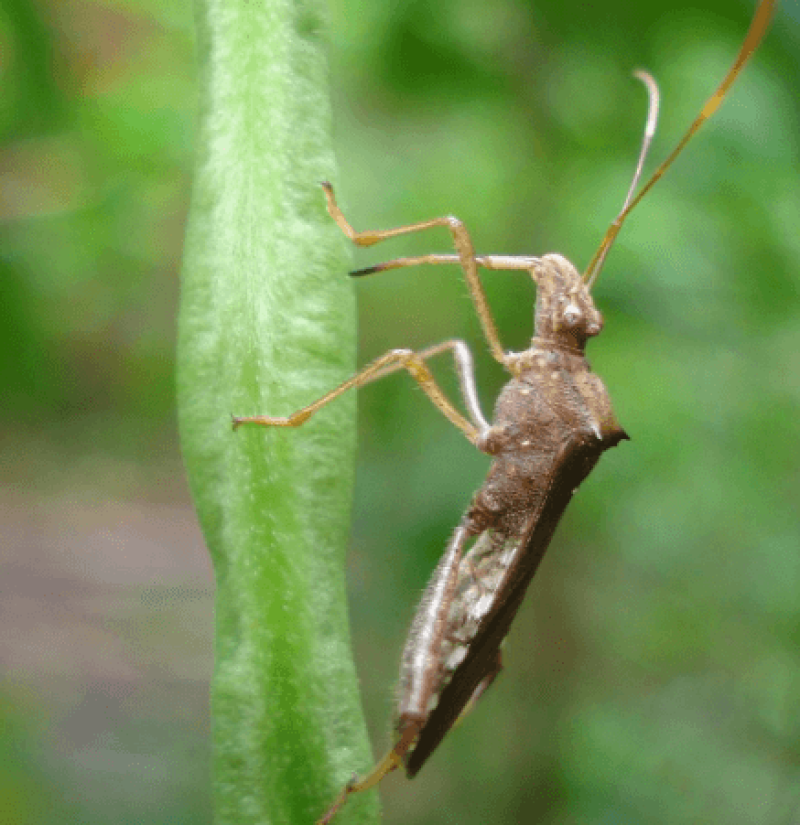…[S]cientists at the Defense Advanced Research Projects Agency (DARPA) want to capitalize on insects’ natural relationships with plants. They believe the insects can transmit viruses carrying beneficial genetic traits to the plants they feed on.
. . . .
The agency wants to use an approach called gene therapy to protect and rejuvenate crops from diseases—both naturally occurring ones and biothreats. Gene therapy uses harmless viruses as a vehicle to carry new genetic material to cells in an attempt to correct or reverse disease symptoms. Scientists think insects, which are the natural carriers of most plant viruses, could shuttle defensive genes to crops. Insects can be quickly bred and released within the same growing season.
. . . .
…[T]his approach is preferable to insecticide spray, which can be expensive and inefficient, since substantial amounts of these products never reach their intended target. Spray technology is also much less common in developing countries.
For now, the gene therapy experiments will be conducted in laboratories or other contained spaces. DARPA hopes the technology will be ready to be released in the field in four years.
The GLP aggregated and excerpted this blog/article to reflect the diversity of news, opinion and analysis. Read full, original post: To Cure Crop Disease Faster, Add Bugs































